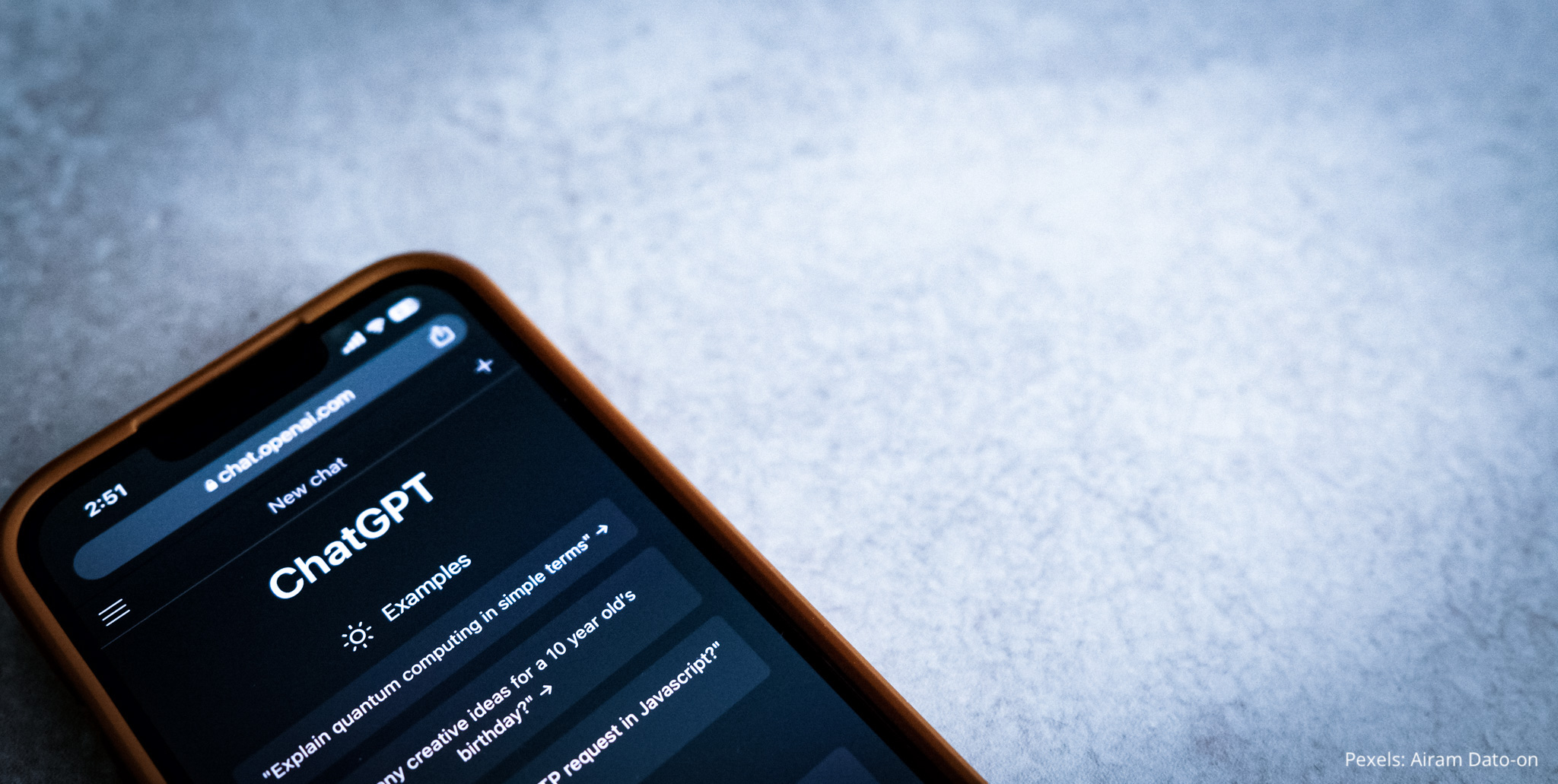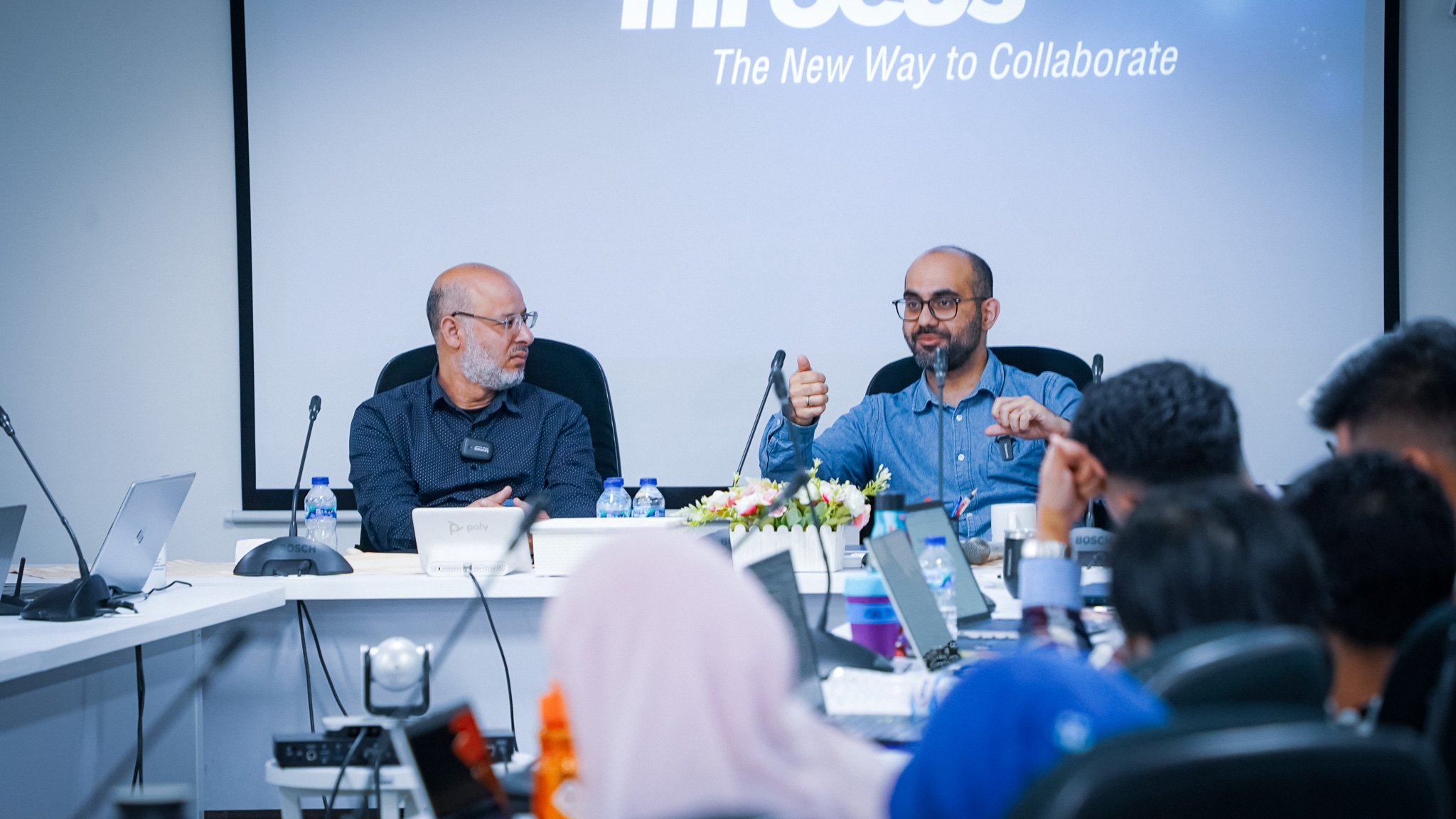Embracing AI Chatbot ChatGPT: For Better or Worse?
March 29, 2023Contributor: Magello Fenis & Maroof Ahmed | Editor: Supriyono

An artificial intelligence chatbot dubbed ChatGPT has recently been on trending on social media and becomes a spotlight of discussions in academic circles. ChatGPT is developed by OpenAI—an American artificial intelligence research laboratory. Later, a multinational technology firm Microsoft Corporation joined the share by investing $1 billion in an attempt to develop the artificial intelligence to the next level.
Generating the public response to the AI tool, OpenAI CEO Sam Altman tweeted on December 5, 2022, that ChatGPT had crossed 1 million users in just five days after its launch. By the end of January 2023, the number multiplied to 100 million users worldwide, proving the high enthusiasm from the public for its presence.
Since ChatGPT is an AI language model, it can yield the processing of data at a tremendous speed and efficiency—less than 10 seconds as per our own observation. In this regard, chatbots are designed to simulate conversation with the absence of human feelings and emotions.
In its technicality, ChatGPT can operate 24/7. Due to the simplicity of its practical use, an individual may no longer need instructional aid to utilize this tool. As an implication, a student may use this chatbot to seek clarity about their lessons. Or if they are just sad and looking for someone to talk with, ChatGPT can even provide therapeutic advice on how to alleviate stress and anxiety.
Yet, despite the positive implications that ChatGPT carries, educators and AI experts around the world are concerned on its possible adverse implications, especially on plagiarism and data privacy. While some would use this cutting-edge tool as a beneficial educational tool, this generative language model can also be used for cheating. In this regard, it is difficult for assessors to really evaluate human-like responses if the output is done by the learners themselves or by the ever-dynamic chatbot.
In response to the raising phenomenon of AI Chatbot ChatGPT, an educational expert who is also the head of the Ph.D. in Education program at Universitas Internasional Islam Indonesia (UIII), Dr. Bambang Sumintono, stressed that the use of it would most likely become more common and thus will make significant changes, especially for businesses like tuition services since AI gives unrivaled answers.
“Many universities as well as journal [publishers], still [do] not recognize machine as a co-author for paper/article/manuscript. So far our university also [does] not permit the use of ChatGPT in terms of assignments and thesis. [Thus] it is still considered cheating, especially when [it is] not declared openly by the student,” Dr. Sumintono said.
In terms of the students’ use of ChatGPT, Dr. Sumintono exemplified this as any other website, meaning that it is open for use, yet only for looking up information. With that being said, Dr. Sumintono stressed that it will become a problem if the students utilized ChatGPT for doing scholarly works that need valid citations.
“I do not think it is a good choice but regulations about independent work, accountability, [and] transparency needs to be looked at [in] more detail, to what extent we can accept work by machine in students’ work,” explained Dr. Sumintono.
Concurring with Dr. Sumintono’s statement, a Ph.D. student at UIII’s Faculty of Social Sciences, Ararat Kostanian, said that the positive and negative aspects of ChatGPT should be taken into consideration. “It is positive when artificial intelligence becomes a method to help researchers, whether in terms of finding articles or keywords by algorithms, but I find tools such as ChatGPT negative when some sources are trying to present it as an alternative to written articles by human beings,” he said.
Indeed, ChatGPT like any other technological tool in the world can be used as either a medicine or a poison. It can be used as a medicine in providing fundamental information and assistance to users which can be used for research and development in inflicting positive impacts to the society. On the other hand, it can also be used for fraud and malicious activities which can spread malicious content and unethical activities.
Thus, this phenomenon becomes a collective homework for all of us in the education field to address this issue in the future.
- Dr. Nia Deliana Navigates India-Indonesia Maritime Softpower at Odisha Research Workshop
- UIII Extends Application Deadline for 2025 International Admissions
- UIII Embraces a Green Ramadan: A Month of Worship and Sustainability
- UIII Evaluates Quality Assurance System, Plans For New Study Programs
- Lost at Sea: UIII’s Dr. Nia Deliana Reveals the Silent Crisis of Sea Refugees
- The Qur’an in a Changing World: Prof. Sahiron Syamsuddin’s Visionary Lecture at UIII
- A Shared Mission of UIII and ICRC in Advocating International Humanitarian Law
- Hartford International University for Religion and Peace Signs MOU with UIII for Future Academic Partnership
- Professor Dian Masyita Honored as a Changemaker in Empowering Communities
- Bridging the Archipelago and the Nile


